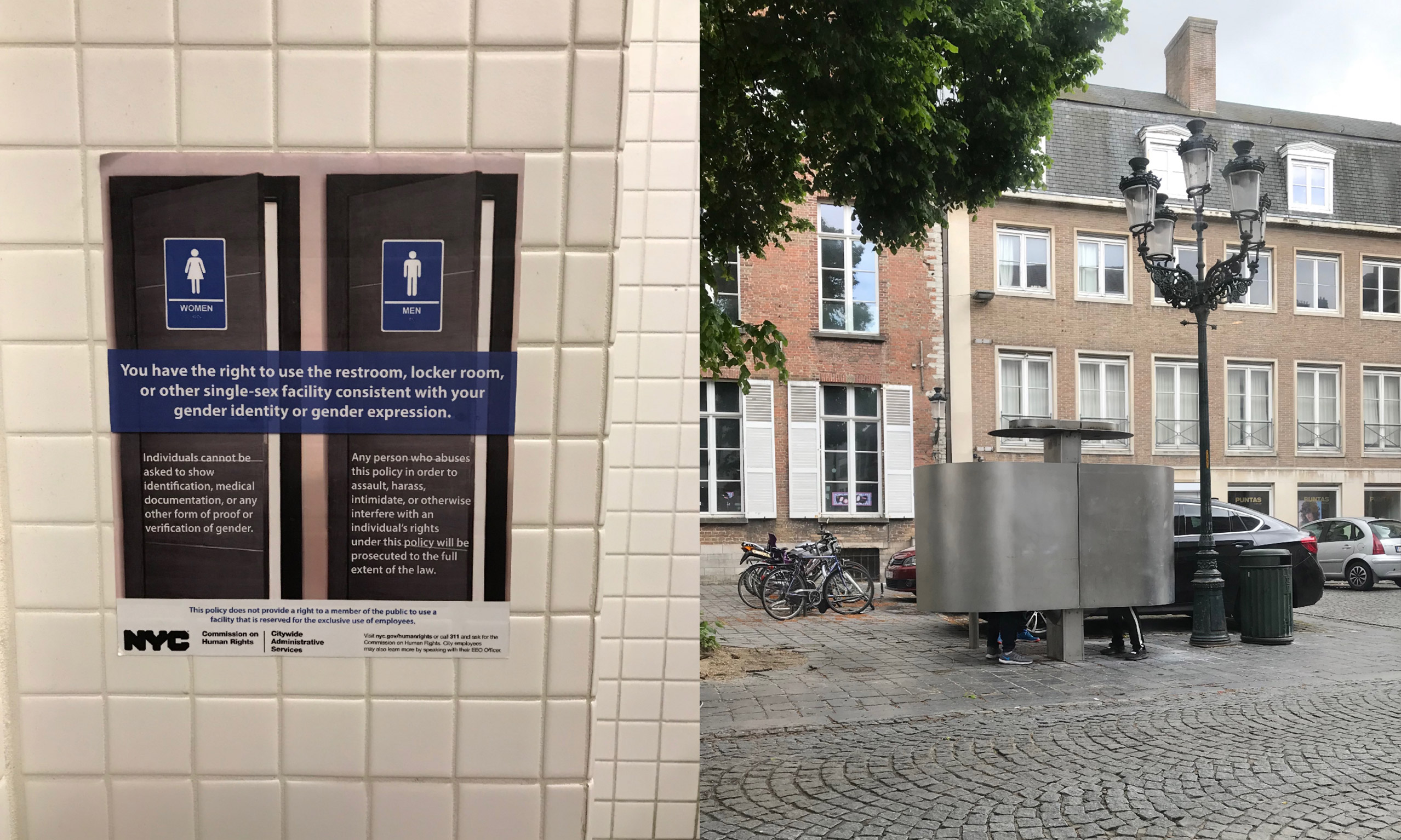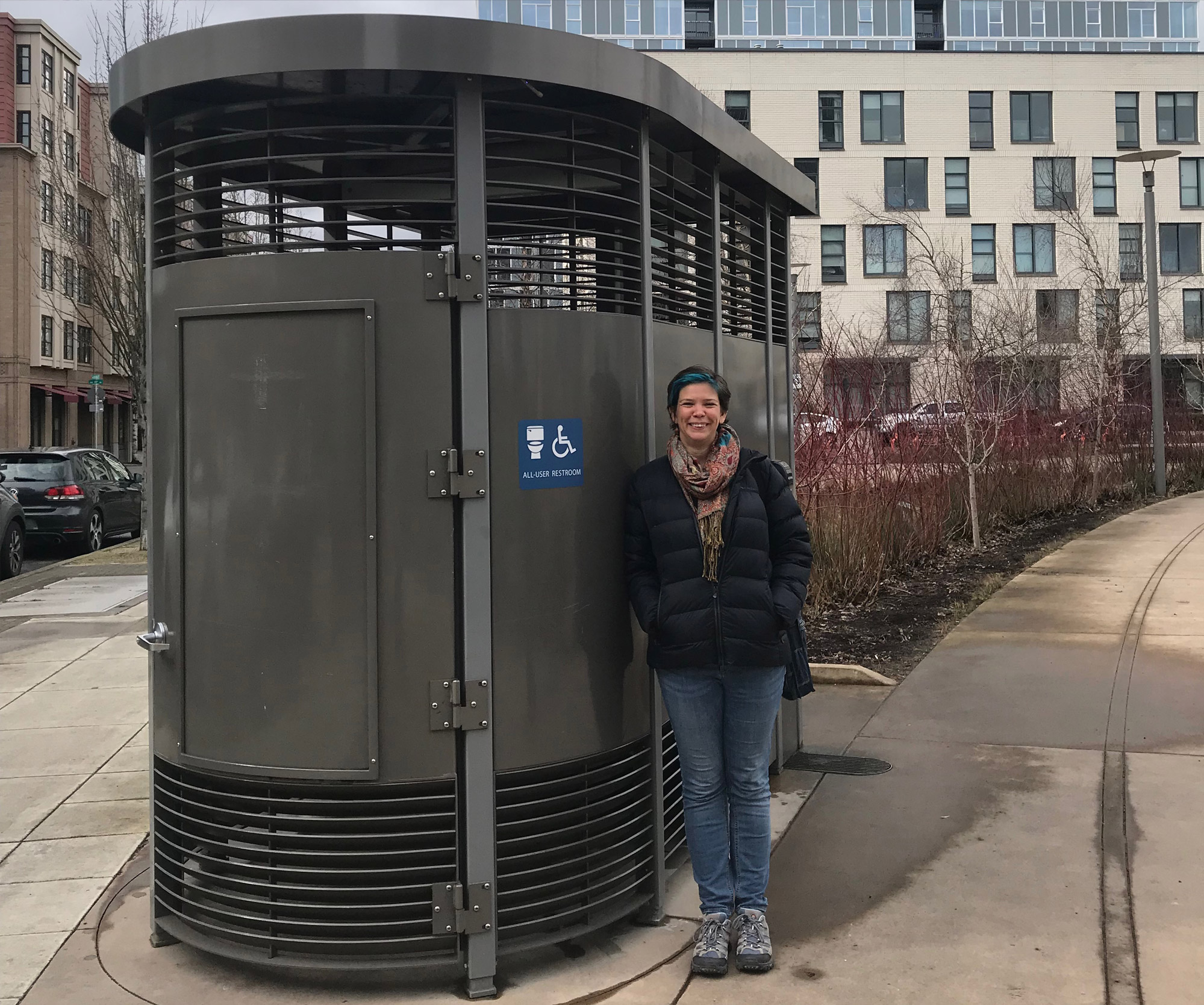“My Churchill Fellowship is a topical subject given Scott Morrison’s recent comments about removing the gender-neutral bathroom signs in the Prime Minister and Cabinet office,” says Churchill Fellow Katherine Webber. “I believe the planning, provision and maintenance of public toilets supports the dignity, humanity and human rights of people.”
Katherine Webber recently returned from her Churchill Fellowship after travelling to the United States, Canada, England, Scotland, Ireland, The Netherlands and Germany, where she researched taboos, design, policy and legal barriers regarding access and inclusion to public toilets.
“I was interested in exploring how barriers to accessibility and inclusion in public toilet design, policy and legislation are being addressed across the world as toilets support the active inclusion of all people in public spaces,” said Ms Webber. “Where toilets are not provided, or there are barriers to their access or use, this contributes to the exclusion of an individual or group of people from the public space.”
Ms Webber attended 28 meetings with community groups, community representatives, advocates and activists, academics, toilet manufacturers, government, business, social enterprise, non-government organisations, library staff and toilet enthusiasts. Whilst the topics covered across the meetings were broad, they all focused on how to meet the basic human need of going to the toilet.

“The Churchill Fellowship provided me with the opportunity to attend the 63rd Commission on the Status of Women (CSW) in New York. The priority theme of CSW was social protection systems, access to public services and sustainable infrastructure for gender equality and the empowerment of women and girls,” said Ms Webber. “I learnt about innovative solutions to support inclusive and accessibility in public toilets ensuring the planning, provision and maintenance of public toilets supports the dignity, humanity and human rights of people. It is time to now amplify this discussion in Australia amongst community members, policy makers and planners and designers.”
Key recommendations from Ms Webber’s research are as follows:
- Develop processes to ensure community input into public toilet location and design to ensure public toilets are meeting identified community needs, including those of minority groups.
- Explore community dialogue mechanisms to support conversations around public toilets and user experiences to build empathy.
- Conduct further research on the provision of sex or gendered segregated spaces, perceptions of safety, inclusion, exclusion and religious requirements and what other mechanisms are required to support de-gendered inclusive and safe spaces.
- New and existing infrastructure should be fortified against climate change and natural disasters.
- Explore scaling up alternative technologies to address environmental sustainability and reduction of water use.
- Develop locally responsive toilet designs, operation and maintenance protocols.
- Include gender and youth focus in infrastructure programs.
